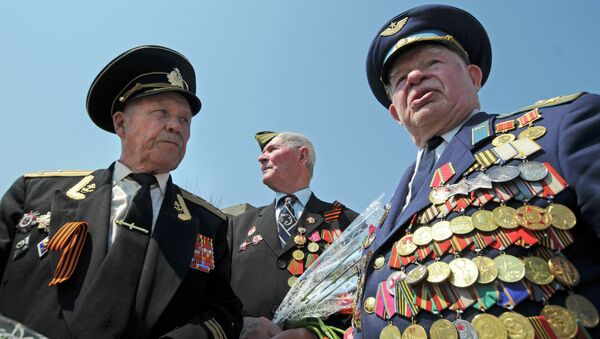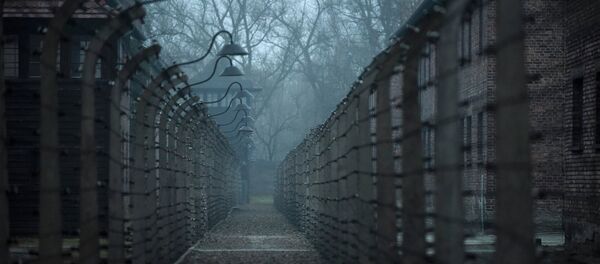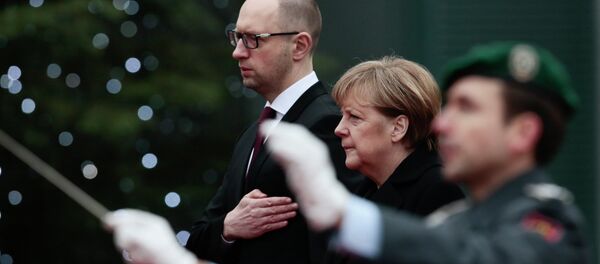A round table in Volgograd titled "The lesson of memory" gathered WWII veterans, representatives of public organizations, students and university professors to discuss the consequences of Nazism and ways to overcome it. After the meeting the veterans wrote a letter addressed to Merkel.
"The truth is, Frau Merkel, that Ukraine is facing a full-scale resurgence of Nazism!.. But the West has a very strange stance, which is not clear to us. It could be interpreted as support for the Ukrainian Nazis. Why are the European nations looking quietly on at the mass violence in Ukraine? What is the genuine goal of economic sanctions — to weaken Russia as a nation, to support Nazism in Ukraine?… We would like to know your opinion on this," the letter reads.
They reminded the Chancellor of the lessons learned in WWII and that rewriting history could cause a revival of Nazism.
On Wednesday, Polish Foreign Minister Grzegorz Schetyna, speaking on national radio, claimed that the Auschwitz-Birkenau concentration camp was liberated by Ukrainians since the operation was carried out by the First Ukrainian Front. "There were Ukrainian soldiers on that January day and they opened the gates of the camp and liberated the camp," the minister said.
On January 8, Ukrainian Prime Minister Arseniy Yatsenyuk told the German TV channel ARD that "all of us clearly remember the Soviet invasion of Ukraine and Germany," accusing Russia of rewriting the history of World War II.
Yatsenyuk's controversial remarks triggered a wave of outrage among Russian politicians. Alexei Pushkov, the head of the foreign affairs committee in Russia's State Duma noted the statements made by Yatsenyuk and Schetyna will not be able to distort history.




